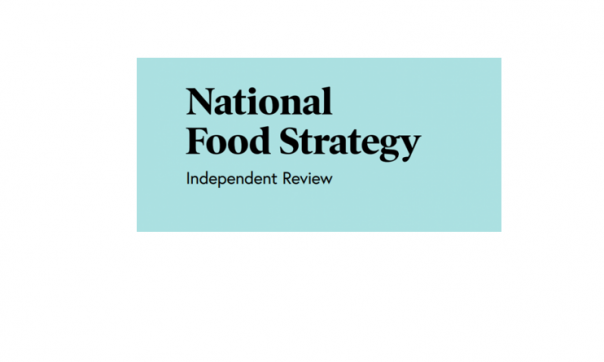
The National Food Strategy made 14 recommendations including introducing a sugar and salt reformulation tax, extending eligibility of free school meals, expanding the healthy start scheme and investing £1Bn in innovation to create a better food system.
The industry reaction includes:
Kate Nicholls, chief executive of UKHospitality: “The National Food Strategy represents an opportunity to identify and tackle the challenges facing hospitality, as well as wider society and the world. As a battered and debt-ridden hospitality sector navigates its way out of the pandemic crisis, the recommendations for equipping our future workforce are very positive elements of Mr Dimbleby’s findings, not least a return to an emphasis on food skills being taught in schools, funding thereof, and strengthening the links and motives for taking food-related study to a tertiary level of education. Building and training our workforce is a top priority if our sector is to quickly revive and drive a national recovery and it is reassuring that this report afforded it due recognition.”
British chef Jamie Oliver: “This is no time for half-hearted measures. If both government and businesses are willing to take bold action and prioritise the public’s health, then we have an incredible opportunity to create a much fairer and more sustainable food system for all families.”
Jimmy Pierson, director of ProVeg UK: “This ground-breaking strategy is a huge stride forward for schoolchildren, who can, by eating more plant-based foods and less meat, become one of its biggest beneficiaries. It also recognises the need for diet change not climate change, and how crucial a role the public sector can play in meeting the Government’s ambitious climate targets. The shift towards eating more plant-based foods and less meat is already in full flow in schools. We’re working with dozens of local authorities, schools and catering companies on menu changes that are being received overwhelmingly positively by children and parents.”
Helen Browning, chief executive of the Soil Association: “Everyone knows farming has to change if we are going to meet our climate and biodiversity goals and improve the health of the nation… Many Farmers are up for the challenge, but will need these recommendations to be implemented to make this possible.”
Kate Halliwell, chief scientific officer of the Food and Drink Federation (FDF): “Food and drink manufacturers welcome the intent to bring forward measures which will help to increase access and affordability of food and drink for children and families on lower incomes. In contrast to this, a salt and sugar tax will ultimately impact those families who are already struggling to make ends meet, by making food and drink more expensive. After many years of cost pressures, businesses in our sector are already operating on very tight margins, and any further costs would simply have to be passed on to the consumer in the form of higher food prices.”
LACA: “[We] welcome that the National Food Strategy shines a spotlight on the increasing number of children who are suffering from food inequality and we wholeheartedly support the recommendation on extending free school meals. We have long supported a whole school approach to food- with the dining hall as the hub of the school where children and teachers eat together- and we are pleased that the report recognises this. We agree that there should be additional funding to train school chefs and that their hard work should be better recognised. LACA have always championed the quality and service of our school chefs and we will continue to do so.”
Prue Leith, judge of The Great British Bake Off: “There is so much to celebrate about our food, but we do need to act urgently to protect our health and that of the environment. This is a compelling and overdue plan of action. If the Government adopts it, we will, at last, be putting our food system on the right path to health and prosperity.”
Tom Kerridge, michelin-starred chef: “The Dimbleby Report has worked through an incredibly complex landscape and resulted in a set of comprehensive, eminently workable recommendations that are practical and will have a direct impact on our lives. I take great heart in several recommendations that particularly resonate and relish the opportunity to see a new generation of children given the opportunity to learn to cook. A fundamental skill no child should be without. I applaud the findings and recommendations of the report.”
Food Foundation: “We are pleased to see string recommendations on sugar and salt taxes to encourage reformulation, mandatory business reporting, action on children’s food security, increasing access to fruit and vegetables, and strengthening food system governance. The Government now has a once in a lifetime opportunity to take the report’s recommendations seriously, and to pivot the food system to protect human and planetary health.”
Alexia Robinson, founder of Love British Food & British Food Fortnight: “[The] National Food Strategy presents a terrific opportunity to revolutionise our approach to food and farming. Henry Dimbleby and Tasmin Cooper have done a superb job. Brilliant to see it receiving widespread and passionate approval.”
Professor Graham MacGregor, chairman of Action on Salt & Action on Sugar: “If there was an opportunity to finally transform our food system to save lives- this is it- especially the call for a landmark Salt Reformulation Tax which will make the UK the first country in the world to have a mandatory salt levy.”
To Access part two of the National Food Strategy, click on the document below.